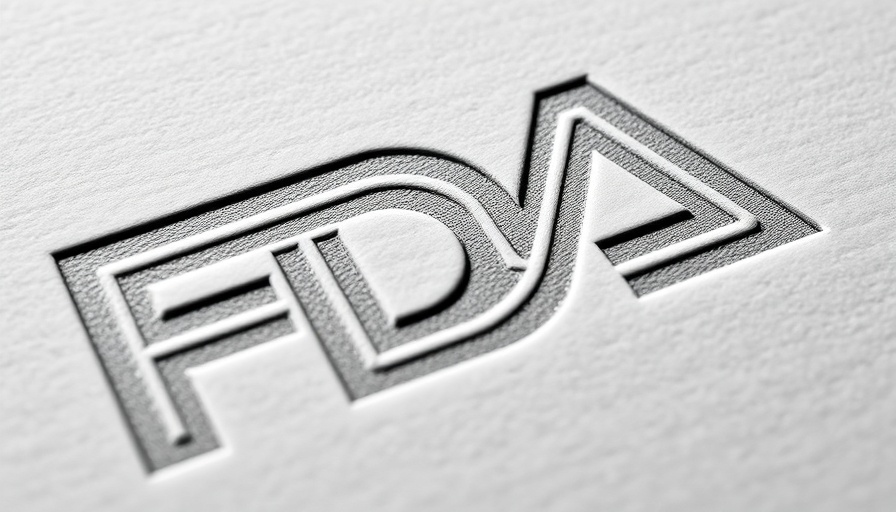
FDA Layoffs: A Growing Crisis for Medical Device Reviews
The recent layoffs at the Food and Drug Administration (FDA) have sent ripples through the medical community, particularly affecting the approval process for medical devices that are crucial for patient care. According to a Reuters report, the workforce reductions initiated by the U.S. Department of Government Efficiency (DOGE) have nearly doubled the workload of remaining FDA scientists. This surge in responsibility has led to significant delays in reviewing new products and the cancellation of numerous research projects related to tobacco products as well.
The Broader Context of Federal Workforce Cuts
These layoffs are not standalone; they reflect broader federal workforce cuts enacted during the Trump administration, impacting multiple agencies including the Consumer Financial Protection Bureau and the Federal Deposit Insurance Corporation. The FDA has long been seen as a critical gatekeeper for healthcare innovation, and these staffing challenges raise serious concerns about its ability to fulfill its mission. Medical device manufacturers are especially worried—not just for the industry, but for the patients who depend on these innovations for improved health outcomes.
Industry Concerns Over Delays in Device Reviews
The medical device industry had already been grappling with lengthy review times even before the layoffs. In February, Scott Whitaker, the president and CEO of AdvaMed, voiced concerns about the FDA's capacity to stay on top of the tens of thousands of new technology applications submitted each year. This industry's worries are compounded by a fee agreement designed to incentivize faster and more efficient reviews. Whitaker acknowledged that while recent user-fee agreements had made strides in improving review timelines, the latest workforce cuts threaten to undo that progress.
Efforts to Restore FDA's Workforce
In response to the pressing challenges posed by these layoffs, the FDA has announced plans to rehire 300 scientists who were recently dismissed. Among those applications impacted is Neuralink, a company spearheaded by Elon Musk, which seeks to revolutionize treatment options through cutting-edge technology. This rehiring effort includes positions fundamental to the review of applications for new medical devices, highlighting the FDA's commitment to restoring its capabilities amidst growing industry demands.
The Ripple Effects on Concierge Medical Practices
For concierge medical practice owners, these developments serve as an urgent reminder of the importance of understanding the regulatory environment surrounding healthcare innovations. Delays in medical device approvals can significantly impact the tools and technologies available for use in these practices, ultimately affecting patient care. With longer waiting times for new technologies, practices risk falling behind in providing high-quality services that meet patients’ evolving needs.
Why Health Care Providers Should Pay Attention
Concierge practices focus on personalized care and often utilize the latest technologies to enhance their offerings. Understanding these regulatory constraints and their implications helps practice owners strategically align their services with advancements in medical technology. Being proactive in adapting to these delays can empower doctors to better inform their patients and plan for the types of equipment and treatments they may wish to implement in the future.
Bridging the Gap with Comprehensive Patient Connect Strategies
Establishing clear communication channels and educational resources for patients can help ease any anxiety arising from longer delays in technology approvals. Strategies may include leveraging digital platforms to keep patients informed about the regulatory landscape and providing them with insights on alternative or emerging therapies that are currently available. This not only enhances patient trust and loyalty but also positions your practice as a forward-thinking leader in the healthcare landscape.
Conclusion: Navigating the Future
As the FDA grapples with the repercussions of workforce reductions, the impact on medical device reviews and, by extension, patient care cannot be overstated. While the agency's efforts to rehire staff aim to address this issue, uncertainties remain. For concierge medical practice owners, understanding these dynamics is crucial in safeguarding quality patient care and maintaining a competitive edge.
To navigate these evolving challenges effectively, consider reevaluating your practice's operational strategies and patient connect initiatives. Embrace a proactive approach to remain ahead in a shifting regulatory environment, ensuring that your practice not only survives but thrives.
 Add Row
Add Row  Add
Add 






Write A Comment